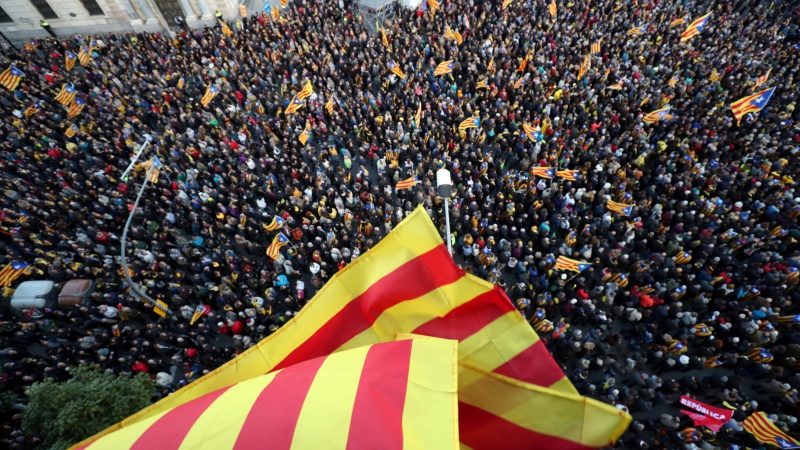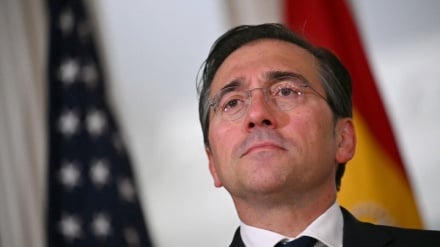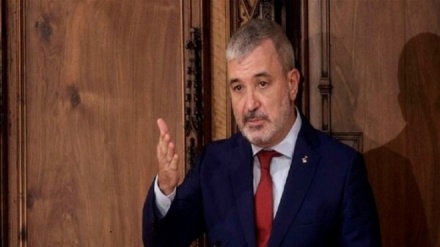‘Jail terms for secessionist Catalan leaders massive error’
A pro-independence figure from Catalonia has lambasted as a “massive error” a ruling issued by Spain’s top court to sentence several former pro-secession leaders of the region to up to 13 years in prison for sedition over their role in a 2017 referendum.
According to reports, Spain’s Supreme Court sentenced nine separatist leaders from Catalonia to between nine and 13 years — some 100 years in total — behind bars on charges of “sedition” over their role in the independence referendum held in early October 2017.
“We think that this verdict is a massive historical error… We think this is completely outrageous and we don’t think it’s justified and we don’t think it is justice. It is revenge,” said Mireia Borrell during a Wednesday.
Although all defendants were acquitted of the gravest charge, rebellion, the rulings have taken tens of thousands of protesters to the streets of the Catalan capital of Barcelona and other cities since Monday.
The rallies were mostly peaceful, but violent clashes were also reported between protesters and the riot police, and footage of the scuffles showed hundreds of masked demonstrators who threw projectiles at officers and set garbage bins and cardboard boxes on fire.
Borrell also strongly rejected the accusation of sedition leveled by the Supreme Court against the leaders, saying the Catalan government at the time pushed the referendum through a “legal” process.
She also insisted that the region had for years been aspiring for independence through numerous “peaceful and non-violent” demonstrations, seeking the right for self-determination and now for human rights to be respected. She also emphasized that the bid for independence was only based on “dialog.”
Since Monday, dozens of protesters have been arrested during rallies across Catalonia.
According to Spain’s Interior Ministry, more than 70 police officers have so far been injured in the clashes, including several who suffered broken bones.
The region’s independence drive attracted worldwide attention, triggering Spain’s biggest political crisis in decades and unnerving financial markets.
The resource-rich region provides at least one-fifth of Spain’s gross domestic product (GDP), and many of its residents believe they are disproportionately taxed by the government in Madrid.
SS



